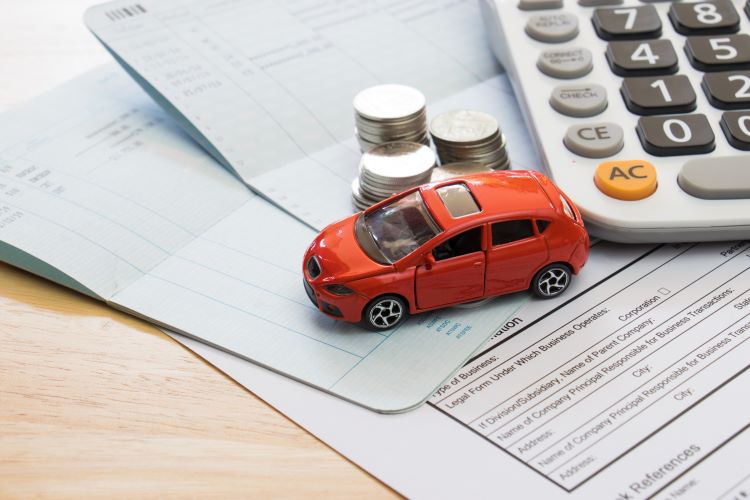Your Car’s Worth Might Surprise You — Start Your Estimate
Understanding the current value of your car can be more insightful than you might think. Even if you’re not planning to sell right now, having a sense of your vehicle’s estimated market position allows you to make informed decisions, stay aware of trends, and recognize opportunities that might arise. Early awareness of your car’s potential worth can influence everything from maintenance choices to future upgrades or trade-ins, giving you a clearer perspective on your options in a dynamic market.

The value of your vehicle isn’t just a number—it’s important information that influences major financial decisions. Many car owners are surprised to learn their vehicle might be worth significantly more or less than they assumed. With the automotive market experiencing unprecedented fluctuations in recent years, staying informed about your car’s current value has never been more critical. Understanding what factors affect your vehicle’s worth and how to accurately assess it can provide you with the knowledge needed to make informed decisions about selling, trading in, or maintaining your current vehicle.
Understanding Current Market Trends in Vehicle Valuation
The automotive market has undergone dramatic shifts in recent years, creating unusual valuation patterns that defy historical norms. Used car prices soared to record highs during 2021-2022, with some vehicles actually appreciating rather than depreciating. While the market has begun normalizing, many segments continue to experience unusual pricing dynamics.
Supply chain disruptions, manufacturing delays, and changing consumer preferences have all contributed to these market anomalies. Certain vehicle categories—such as fuel-efficient models, reliable SUVs, and trucks with strong utility features—have maintained stronger value retention than others. Understanding these broader market trends provides essential context for accurately estimating your specific vehicle’s worth in today’s environment.
How to Assess Your Vehicle’s Potential Worth
Determining your car’s value involves multiple factors that professional appraisers carefully evaluate. The most significant determinants include your vehicle’s age, mileage, condition, service history, and regional demand. Optional features, color, and even seasonal timing can impact valuation—for example, convertibles often command higher prices in spring, while all-wheel-drive vehicles may see value increases during winter months in northern regions.
To get an accurate assessment, gather your vehicle’s specific details including the exact trim level, all optional features, maintenance records, and honest assessment of its condition. Professional appraisals typically evaluate exterior condition, interior wear, mechanical functionality, accident history, and market demand for your specific model. Online valuation tools provide a starting point, but they often miss nuances that in-person appraisals can identify.
Planning Smarter Maintenance and Upgrades Based on Value
Knowing your vehicle’s current worth enables strategic decisions about maintenance and upgrades. Not all vehicle improvements yield equal returns on investment. Generally, fixing mechanical issues and maintaining proper service records provides better value retention than cosmetic modifications or aftermarket accessories.
Strategic maintenance investments can significantly impact your vehicle’s appraisal value. Regular oil changes, timing belt replacements, and other manufacturer-recommended services preserve value by demonstrating proper care. Conversely, deferred maintenance can dramatically reduce value—often by amounts far exceeding the cost of the maintenance itself. Understanding your car’s current worth helps determine which repairs make financial sense and which might exceed the potential return.
Gaining Insight into Trade-In and Upgrade Timing
Timing can significantly impact the financial outcome when selling or trading in a vehicle. Understanding your car’s current and projected value trajectory helps identify optimal windows for making a move. Most vehicles experience predictable depreciation curves, with the steepest drops occurring in the first few years of ownership before leveling to more gradual declines.
However, market disruptions, model redesigns, and seasonal factors can create temporary value fluctuations. For example, trading in just before a major model redesign often yields better value than waiting until after the new model launches. Similarly, selling a fuel-efficient vehicle during periods of high gas prices typically generates better returns. Professional appraisals can help forecast these value shifts, providing clarity on whether to hold or sell your current vehicle.
Staying Informed About Vehicle Value Shifts
Vehicle values rarely remain static, making regular reappraisals valuable for owners who want to maximize their automotive investments. Tracking your car’s value over time reveals patterns that can inform maintenance decisions and optimal selling windows. Many factors can cause unexpected value shifts, including manufacturer recalls, changing consumer preferences, fuel price fluctuations, and economic conditions.
Experts recommend reassessing vehicle value every six months, particularly in volatile markets. This practice helps identify emerging trends that might affect your specific make and model. For example, increased demand for electric vehicles might accelerate depreciation for certain gas-powered models, while limited production of specific models might help them maintain stronger values than comparable vehicles.
Vehicle Appraisal Services and Their Costs
Various options exist for obtaining professional car appraisals, each with different levels of detail and cost structures. Understanding these options helps you choose the most appropriate service for your needs.
| Appraisal Service Type | Provider Examples | Cost Estimation |
|---|---|---|
| Online Valuation Tools | Kelley Blue Book, Edmunds, NADA Guides | Free to $25 |
| Dealership Appraisals | Local franchised dealers | Free (with trade-in interest) |
| Independent Appraisers | ASA-certified appraisers | $100-$400 |
| Mobile Appraisal Services | Various regional providers | $75-$200 |
| Insurance Appraisals | Specialty insurance appraisers | $150-$500 |
Prices, rates, or cost estimates mentioned in this article are based on the latest available information but may change over time. Independent research is advised before making financial decisions.
The level of detail and accuracy typically correlates with the cost of the service. While free online tools provide quick estimates, they often miss vehicle-specific conditions that can significantly impact value. Professional appraisers provide more comprehensive evaluations, documenting condition issues and highlighting value-adding features that automated systems might overlook.
Understanding your vehicle’s true market value provides powerful knowledge that can influence major financial decisions. Whether you’re planning to sell, trade in, or simply want to make informed maintenance choices, a professional appraisal offers insights that often surprise owners—sometimes pleasantly so. By staying informed about your car’s worth and the factors that influence it, you position yourself to make strategic automotive decisions that align with your financial goals and needs.




